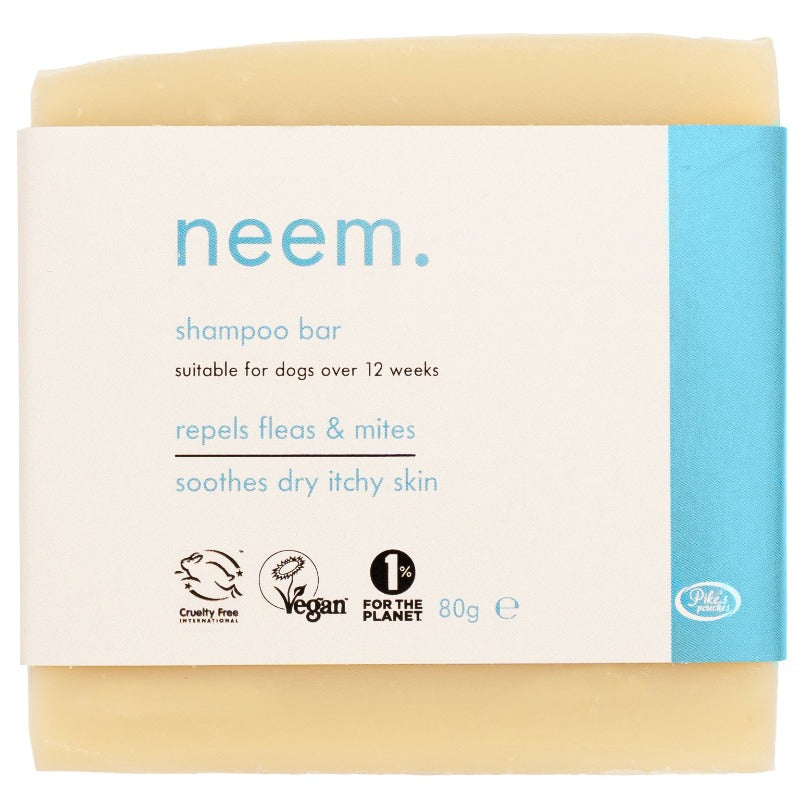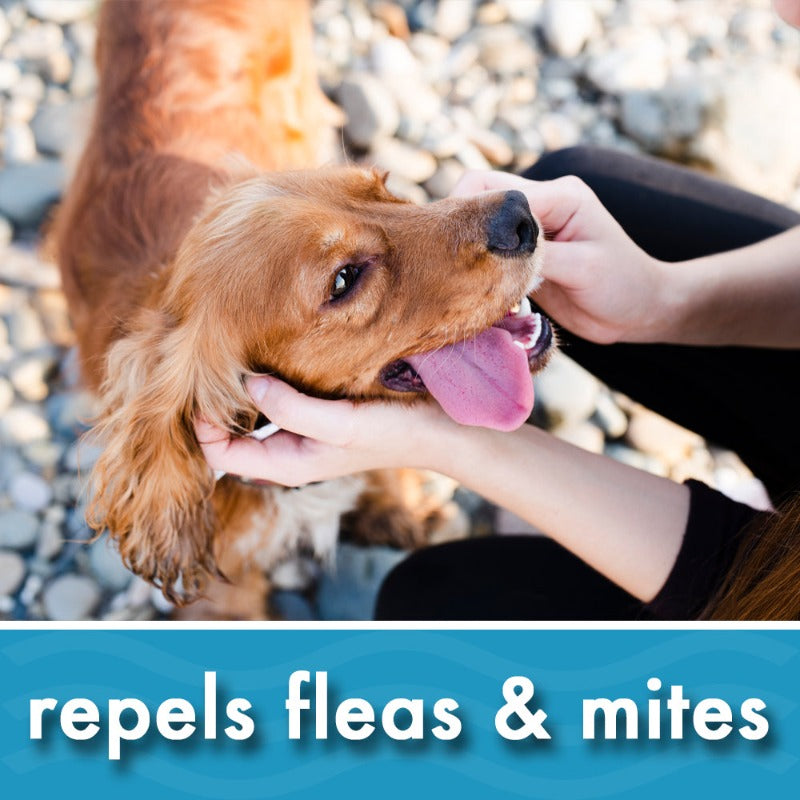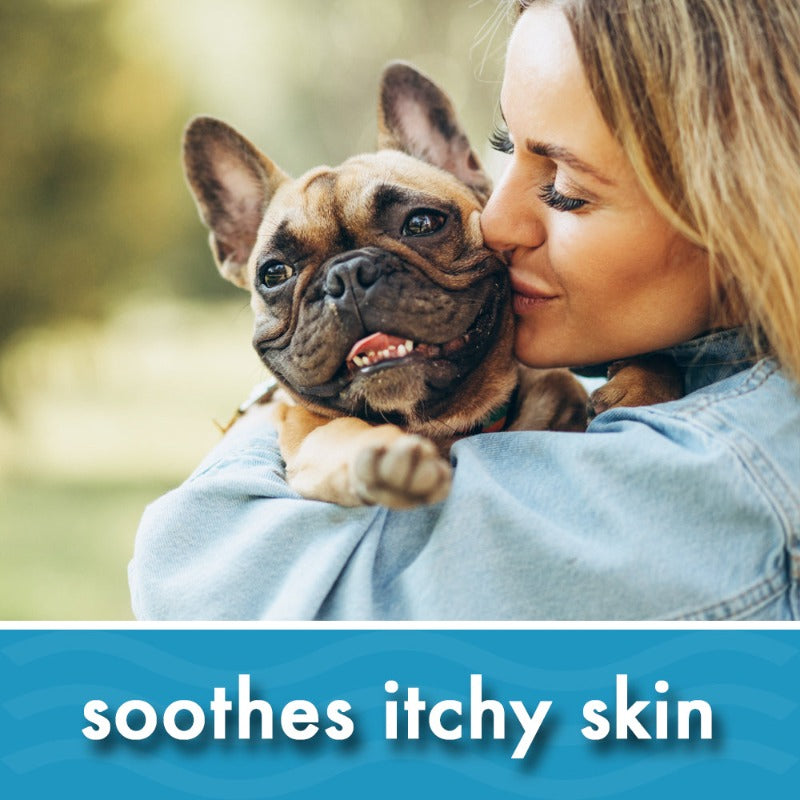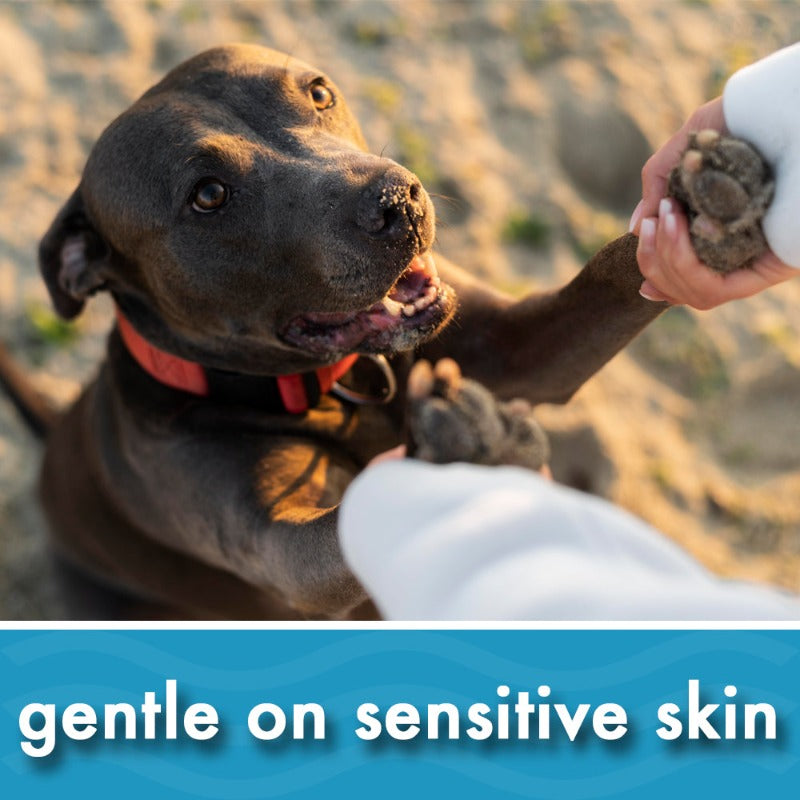Estimated Read Time: 5 minutes
Table of Contents:
- What is Neem Oil?
- Is Neem Oil Safe for Dogs?
- Does Neem Oil Kill Fleas, Ticks & Mites?
- Is Neem Oil Good for Dogs' Skin?
- How to Apply Neem Oil to Dogs
- Conclusion
What is Neem Oil?
Derived from the seeds of the neem tree, neem oil has been treasured for centuries for its various therapeutic properties. Originating from India, the neem tree is a botanical marvel, with its oil boasting a range of benefits including antiseptic, antifungal and antibacterial properties.
Is Neem Oil Safe for Dogs?
Concerns regarding the safety of neem oil for dogs are valid, as pets are sensitive beings. However, when used appropriately and in moderation, neem oil can be safely applied to dogs' coats. It's important to use diluted neem oil or products specifically formulated for canine use such as neem shampoo for dogs to avoid any potential adverse reactions.
Does Neem Oil Kill Fleas, Ticks & Mites?
Neem oil's efficacy against fleas, ticks and mites lies not in its ability to outright kill them, but rather in its potent repellent properties. When applied to a dog's skin and coat, neem oil creates an environment that these pests find inhospitable, thus deterring them from taking up residence on your furry friend.
Is Neem Oil Good for Dogs' Skin?
Beyond its pest-repelling abilities, neem oil also offers benefits for dogs' skin health. Its anti-inflammatory and soothing properties make it an excellent option for addressing skin irritations, allergies and minor wounds. Regular use of neem oil can contribute to maintaining a healthy and itch-free coat for your canine companion.
How to Apply Neem Oil to Dogs
While neem oil can be used in various forms, including sprays and topical applications, it's essential to exercise caution and opt for products specifically designed for dogs. Pure neem oil may be too potent and could cause irritation if not properly diluted. Using neem oil in a shampoo or spray ensures safe and effective application without the risk of overdosing.
Conclusion
In conclusion, neem oil presents itself as a natural and holistic solution for various canine care needs. From repelling pests to soothing irritated skin, its versatility makes it a valuable addition to any pet owner's arsenal. However, it's crucial to prioritize safety and moderation when incorporating neem oil into your dog's grooming routine. By doing so, you can harness the power of nature to keep your furry friend healthy and happy.












